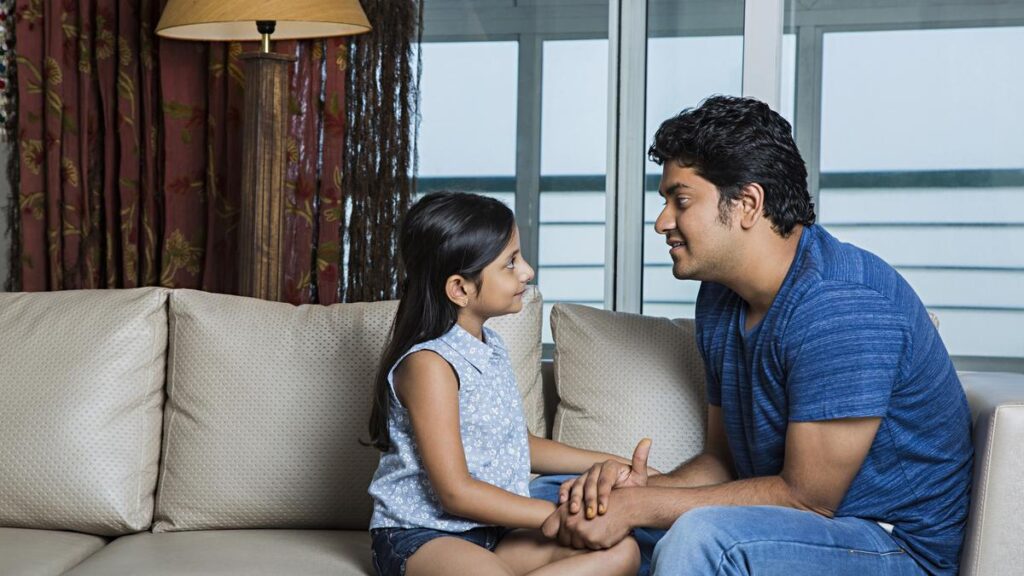An empathetic approach to parenting also requires early recognition and intervention of signs of psychological distress. |Photo courtesy: Getty Images/iStockphoto
In modern India, young people are often under intense scrutiny for their perceived indifference towards health, career prospects and social responsibilities. Criticisms of drug abuse, sexual misconduct, and over-reliance on technology abound. However, such concerns often obscure a fundamental consideration in youth development: the role of parenting. Because families, as the main agents of socialization, have a significant impact on children’s futures, a critical examination of whether current parenting practices are exacerbating these problems is necessary.
Recent data has revealed a disturbing trend: suicide among young people in India is on the rise. This alarming phenomenon reveals serious flaws in this country’s approach to mental health and family communication. Tragically, many young people who take their own lives are unable to seek support from their families and continue to suffer in silence. This issue therefore highlights broader concerns about how social norms and cultural taboos inhibit frank discussions about mental health, substance abuse, and personal challenges.
In societies where traditional values often prevail, conversations about sensitive topics such as mental health and drug use are often stigmatized. These cultural norms foster an environment in which children feel isolated and reluctant to voice their concerns. This pervasive silence can further increase feelings of hopelessness and hopelessness among young people.
A study conducted by the National Institute of Mental Health and Neurosciences (NIMHANS) shows that adverse childhood experiences, from family neglect and sibling rivalry to exposure to domestic violence, have serious consequences for children’s mental health. It has been demonstrated that it has a significant impact. These early experiences are closely associated with the development of mental health problems such as depression and anxiety, which can manifest as academic difficulties and, in extreme cases, suicidal tendencies. The association between early negative experiences and subsequent mental health outcomes highlights the urgent need for change in parenting practices.
Evolving parenting paradigm
Given these facts, it is imperative that Indian families adopt a more progressive approach to parenting. Traditional methods that emphasize strict discipline and control may not address children’s deeper emotional needs. Instead, there is an urgent need for parenting that fosters open communication, empathy, and support.
Parents should strive to create an environment where children feel safe discussing sensitive issues without fear of retaliation. This includes establishing regular supportive conversations that encourage children to express concerns about their mental health, substance use, and other personal challenges. This kind of open communication not only helps children feel valued and heard, but also helps reduce feelings of isolation and hopelessness.
An empathetic approach to parenting also requires early recognition and intervention of signs of psychological distress. Parents should always be aware of changes in their child’s behavior or mental health and seek professional help if necessary. Encouraging healthy coping mechanisms and providing psychological support is important to prevent mental health problems from escalating.
Changing society’s attitudes towards child-rearing is essential to increasing the well-being of future generations. Normalizing discussions about mental health and fostering supportive family environments will help young people navigate the complexities of modern life with resilience and self-awareness. This change not only benefits individual children, but also contributes to the well-being of society as a whole.
After all, it’s more than just taking care of children. It is about ensuring that every child has the fundamental right to be cared for, supported and nurtured. As we consider the nature of our roles as parents and guardians, let us remember that a child’s right to understanding and empathy is not a privilege, but a birthright. By accepting this truth, we pave the way for a future where all children can thrive free from the shadows of neglect and silence.
gunseerat09@gmail.com
Published – October 6, 2024 1:31 AM IST

